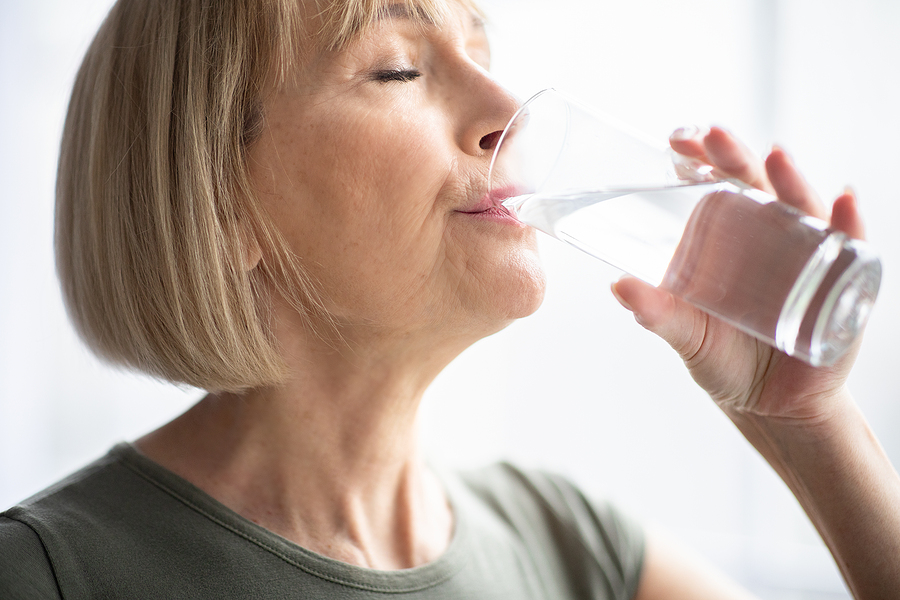In these cooler months it’s easy to forget about water. But here are four good reasons to make an effort.
- Healthy body function depends on it
Remember that much of our body is water — our brains, blood, skin, cartilage and so on. We also need it for proper gut function, so we can absorb nutrients and get rid of waste.
Where our brains are concerned, even mild dehydration can affect our mood, concentration and reaction time.
In addition, dehydration thickens our blood, making it harder to pump. This gives our hearts more work to do and increases our susceptibility to clots, plaque and inflammation.
Joints need hydration too, and while I’m not sure if improved fluid balance makes a noticeable difference for people dealing with joint pain or stiffness, I’d be doing my best to stay warm, mobile and well hydrated through winter.
- Thirst might not be a reliable indicator
Researchers point out that although our need for water doesn’t change with age, our sensation of thirst might not be as dependable as it once was.
It helps to know that lack of water might show up as tiredness, lack of energy, a headache, or constipation, rather than feeling thirsty.
- Medications can be diuretic
We need to appreciate that some medications — such as those for high blood pressure — can increase our water loss by increasing our urine output.
- It helps manage our weight
As you know, water helps to fill us up. In the past I noticed that in summer I was rarely hungry between meals because I was drinking plenty. But in winter I’d be more likely to feel like I needed snacks (and end up a few kilos heavier by spring). These days I know the snacky feeling is probably a sign that I need to drink more.
The volume of water we need in summer is likely to be different from what we need in winter, and I wish there was some handy formula to work out the difference. Alas there’s no hard evidence for eight glasses, but it’s the only guide we have, aside from monitoring our urine colour.
Of course, certain foods and meals — including soups and casseroles — contain water. As do warm drinks.
Ultimately, we all need to do some self-monitoring, including checking in with how we feel, to arrive at our own formula.
Photo Source: Bigstock

